Zakiyyah Dzukogi: What is the process of writing a poem like for you? Is it a lot of hard work or easy?
Rahma Jimoh: Writing for me comes in different ways; sometimes I intentionally set out to write, and this is mostly based on an event. For instance, there was a fire outbreak in my area recently. I intentionally set out to write about it but couldn’t do that immediately. It was only after some weeks that I found the right words and sanity to write that poem down, though it was in my head all along. I like to write about current events. This is why I consider myself a political poet sometimes. Other times, I do not set out to write; I just find myself writing, anyhow, on anything. I love writing; it’s a passion for me, and the only hard thing about writing is setting out to write and starting the writing itself. This is quite difficult because I find it hard to sit down and write when I am uncomfortable, when there is noise around me, or when I am not satisfied with the state of my surroundings. Another hard thing about writing is the editing, I hate to see certain things go, but now I am constantly learning that writing is a craft and there is a way it should be done, away from the fantasies in my head.
Zakiyyah Dzukogi: Please describe your sense of identity in this or any possible world in imagery or metaphor.
Rahma Jimoh: I love to think of identity as the place where I come from, where I was born, my religion, where I currently am, the circumstances surrounding my birth, my name, my family, and the society that shaped me, but I recognize that identity constantly changes. There are a lot of places I would love to move to if God pleases, and I will identify with these places too, and they will become metaphors and imageries in my poems.

Zakiyyah Dzukogi: If any of your poems could literarily save a person’s life, which poem would it be and can you describe the person whose life you think it would have saved?
Rahma Jimoh: This will have to be my first published poem in SubSaharan Magazine. The poem was written as a prayer for Nigeria. It is titled Setting Sun and the end lines are a plea to God;
“Embrace us and brace this race for us.
Let our commas,
Go down, with
The setting sun.”
Zakiyyah Dzukogi: What does Africa mean to you, as potential or reality?
Rahma Jimoh: Africa is a reality for me. Africa means home, means culture, means originality, means identity. Africa is a reality with lots of potential to do better. I love Africa. I love our practices, our cultures, and traditions. Our music, art, dance, and food all raise my spirits and make me happy, proud, and excited. Africa is beautiful and has a lot of potential.
Zakiyyah Dzukogi: Could you share with us one poem you’ve been most impressed or fascinated by? Tell us why and share your favourite lines from it.
Rahma Jimoh: This is a hard nut to crack. I have so many favourite poems, but “Small Kindness by Danusha Lameris” comes to mind.
Small Kindnesses
By Danusha Laméris
I’ve been thinking about the way, when you walk
down a crowded aisle, people pull in their legs
to let you by. Or how strangers still say “bless you”
when someone sneezes, a leftover
from the Bubonic plague. “Don’t die,” we are saying.
And sometimes, when you spill lemons
from your grocery bag, someone else will help you
pick them up. Mostly, we don’t want to harm each other.
We want to be handed our cup of coffee hot,
and to say thank you to the person handing it. To smile
at them and for them to smile back. For the waitress
to call us honey when she sets down the bowl of clam chowder,
and for the driver in the red pick-up truck to let us pass.
We have so little of each other, now. So far
from tribe and fire. Only these brief moments of exchange.
What if they are the true dwelling of the holy, these
fleeting temples we make together when we say, “Here,
have my seat,” “Go ahead — you first,” “I like your hat.”
Kwame Dawes‘s “Tornado Child” also comes to mind. I love listening to the poem more than reading it. Listening to it is musical and so powerful. You can listen to it here: Tornado Child by Kwame Dawes.
Rahma O. Jimoh is a creative writer, journalist, and photographer. A lover of sunsets and monuments, she has been published or forthcoming in Ake Review, Tab Journal, Agbowo, Olongo Africa, Lucent Dreaming, Feral, and Kalahari Review, among other places. She won the 2022 Lagos-London poetry contest and is the Poetry Editor for Olumo Review and a Prose Reader at Chestnut Review. She curated Claws of Hope, the Independence Day Anthology, and was the former lead rep of PIN OOU Connect Center. She can be contacted via Facebook @Rahma O. Jimoh or Twitter/Instagram @dynamicrahma
- Poet’s Talk: 5 Questions with Nasiba Babale - September 5, 2023
- Poet’s Talk: 5 Questions with Ibraheem Uthman - August 29, 2023
- Poet’s Talk: 5 Questions with Zakiyyah Dzukogi - August 19, 2023







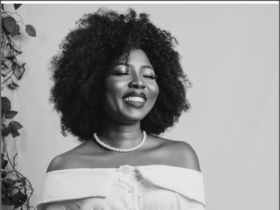
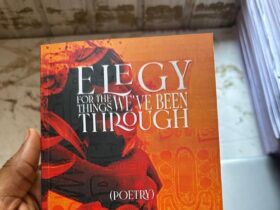
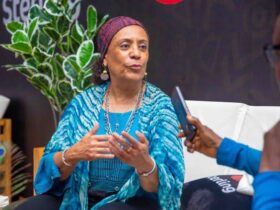
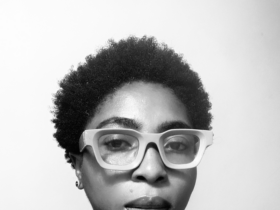
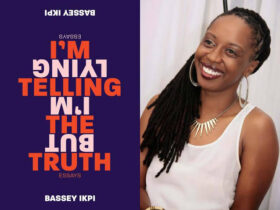

Leave a Reply